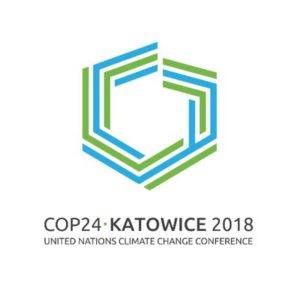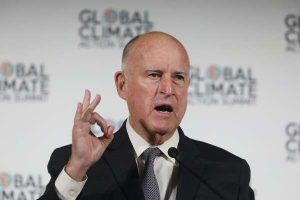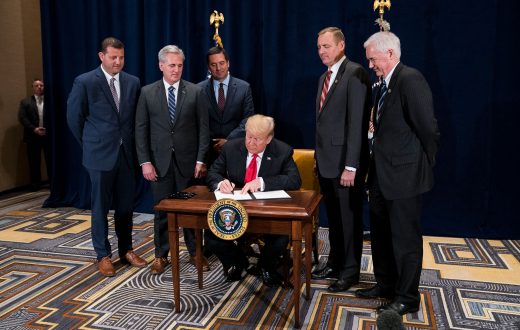 December will be an important deadline for the international governance regarding the protection of the environment. The 197 members of the United Nations Framework Convention on Climate Change (UNFCCC) will take part in the 24th Conference of the Parties (COP24). The COP24 will take place from 3-14 December in Katowice, Poland, and is likely to represent a step further in the global action against climate change. Indeed the states that signed the Paris Agreement of 2015 are supposed to finally define the agreement’s rulebook in Katowice, providing the exact definition of the measures to adopt.
December will be an important deadline for the international governance regarding the protection of the environment. The 197 members of the United Nations Framework Convention on Climate Change (UNFCCC) will take part in the 24th Conference of the Parties (COP24). The COP24 will take place from 3-14 December in Katowice, Poland, and is likely to represent a step further in the global action against climate change. Indeed the states that signed the Paris Agreement of 2015 are supposed to finally define the agreement’s rulebook in Katowice, providing the exact definition of the measures to adopt.
However the action of the UNFCCC is increasingly undermined by an ever growing community of sceptic actors in regards to the real dangers of climate change. The recently elected President of Brazil Jair Bolsonaro highlighted his doubts about environmental policies and affirmed his will to pursue the industrial operation of the Amazon rainforest. At least after promising in his campaign he would join the US President Donald Trump’s decision to leave the Paris Agreement, he back-pedaled and agreed to remain in the accord. In any case it shows what an immense challenge it is to provide efficient environmental policies at the state level. It may be the time to adopt a different scale.
On 10th September Governor Jerry Brown of the American state of California signed an executive order to initiate a large-scale process to make the state entirely carbon-neutral by 2045. This will imply the shift to a zero-carbon electricity system and the installation of many forms of renewable energies. As a comparison it would be the same if France, which is the world’s sixth biggest economy with the same GDP as California, decided to turn carbon-neutral. Although Jerry Brown will no longer be Governor after the midterm elections California is deeply dedicated to the protection of environment. The state remains bound by the Paris Agreement and will therefore probably keep this executive order as it stands. It is indeed the opposite to Mr Trump’s vision which is to ignore all warning signs and to promote polluting industries.

This example of California choosing its own way embodies the increasing role of local initiatives. Besides Trump’s government hostile attitude towards environment important measures were implemented in many American cities, such as electrified public transports or energy-efficiency standards on buildings. An even more meaningful example is that of the state of Illinois. The Republican Governor Bruce Rauner of Illinois has promised a $750 million investment in job training in renewable-energy industries and has undertaken to substantially increase the state’s solar capacity. Moreover cities around the world are trying to meet the emissions reduction target. It is the case of huge metropolis like Paris or Tokyo, or smaller cities such as Aachen in Germany or Zapopan in Mexico.
All of these initiatives were encouraged by international organisations that have the ambitious goal to connect every human-size actions on the planet. It is based on the interesting approach to promote the local efforts at a global scale. The Non-State Actor Zone for Climate Action (NAZCA) was created by the UNFCCC in 2014 to pursue this specific goal. In 2016, 2,021 cities representing 7.3 per cent of the global population had engaged measures against global warming under the aegis of the NAZCA. But it also includes one third of the 2,000 biggest companies and 15 of the 20 biggest banks in the world, showing that even the world champions of pollution can sometimes be involved in eco-friendly measures. The NAZCA acts alongside the International Council for Local Environmental Initiatives (ICLEI), a UN mandated organisation that is in charge of creating cooperation between cities and towns around local initiatives to reduce greenhouse gas emissions. Founded in 1990 the ICLEI now represents a network of 1,500 cities in 120 different countries representing twenty-five percent of the global urban population.
However it has to be said that while these organisations give hope in creating connections and exchanges, it remains minor in impact. Many studies proved that any progress in California or through the NAZCA network will only bring marginal improvements as long as states fund polluting industries. But it had the merit to bring about a new form of governance with the interaction of smaller local entities but still at a global scale. The main assumption in the field of international relations that states are the main actors had already been questioned by Barry Buzan in the 1980s. It appears now that for any action related to the protection of the environment, the role of states is less and less important while the impact of municipalities working together is not longer to be proved. Even though it is a mere drop in the ocean, it may be the key to the future.







